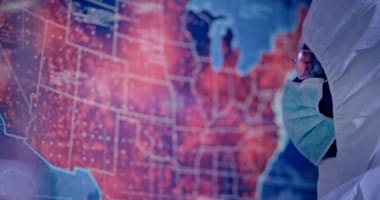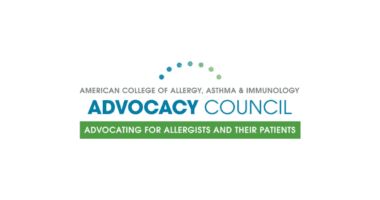After a two-year stalemate, Congress passed bipartisan legislation to protect patients from unexpected out-of-network (OON) “surprise” medical bills as part of a year-end legislative package. Advocacy efforts by the American College of Allergy, Asthma and Immunology’s (ACAAI) Advocacy Council, and other provider organizations, successfully secured important improvements to the legislation before it was passed by Congress. The bill’s direct impact on allergy practices is limited but it could have been much worse.
Protecting patients from surprise bills was one of the few health policy issues that had broad bipartisan support. However, disagreements between influential Congressional Committees over the fine details of the bill prevented Congress from taking swift action.
As the year-end legislative package began to take shape, these Congressional Committees reached a compromise, thus ending the impasse. They introduced the No Surprises Act on December 11, with the goal of including it in the year-end package. By Dec. 24, the bill was passed by Congress and signed into law by President Trump.

Of particular note, the original version of the No Surprises Act included a patient billing provision that laid out a schedule of claim filing requirements that was far more aggressive than what Medicare and commercial payers require. These timelines would have caused significant administrative and financial burdens on all practices.
In the original version, providers would have had 30 days from the date of visit to submit a claim to the patient’s health plan. The health plan would then have 30 days to return an adjudicated claim. Finally, providers would then have 30 days to submit a final bill to the patient. Under the provision, patients would not have to pay medical bills they received after 90 days.
ACAAI’s Advocacy Council, and other provider organizations, successfully lobbied Congress to remove the entire timely patient billing provision from the final version of the bill.
The College supported the bill’s provisions that protect patients from receiving high out-ot-network (OON) bills in these scenarios. Specifically, patients are limited to paying their in-network cost-sharing amount and cannot be balance billed beyond that amount.
The patient protections for surprise medical bills are specific to scenarios that occur in hospitals, ambulatory surgical centers (ASC), critical access hospitals (CAH), and freestanding emergency departments. The purpose of the bill is to protect patients from OON bills for which they have little or no control, such as emergency scenarios or the radiologist who interprets their image during a hospital stay. For services that occur in the physician office setting, patients are more empowered to choose to avoid or see an OON provider. The bill also protects patients from OON bills caused by inaccurate provider directories.
The bill gives the Secretary of Health and Human Services (HHS) the authority to expand the types of facilities to which the protections apply. While the surprise billing protections do not currently apply to OON scenarios at physician practices, they could be expanded to the physician office setting in the future. For this reason, it is important for ACAAI’s Advocacy Council to advocate on the provisions related to the surprise medical bill protections.
The College recommended changes to the process the bill creates to resolve reimbursement disputes between the patient’s health plan and the OON provider that arise from surprise billing scenarios. Specifically, the bill relies on an independent dispute resolution (IDR) arbitration process to settle reimbursement disputes if the health plan and the provider cannot agree on a reimbursement rate. Under the IDR process, each party submits an offer to the arbiter, who will choose one of the two submissions as the reimbursement rate. The arbiter’s decision will be final and cannot be appealed.
The original version of the No Surprises Act would have allowed health plans to submit government payer rates (e.g., Medicare or Medicaid) – which are often well below in-network commercial payer rates – to the arbiter. ACAAI’s Advocacy Council and other provider organizations successfully advocated for Congress to prohibit health plans from submitting government payer rates to the arbiter.
The No Surprises Act takes effect on January 1, 2022, in order to allow HHS the time it needs to issue regulations that will implement key details of this legislation. ACAAI’s Advocacy Council will respond to any HHS provisions that would adversely impact allergists.
The No Surprises Act fails to adequately address many of the reasons why OON scenarios occur in the first place. Overly narrow health insurance networks are one of the most egregious reasons why providers may be out-of-network. Health plans either do not accept new providers into their small networks or they offer unreasonable terms for network participation, which discourage providers from participating. Patients can also experience an unexpected out-of-network bill if health plans deny coverage for a service.
ACAAI’s Advocacy Council will continue to advocate for policies that make health insurance more accessible to patients including how health plans can better protect patients from OON scenarios. ACAAI’s Advocacy Council – we have you covered.



